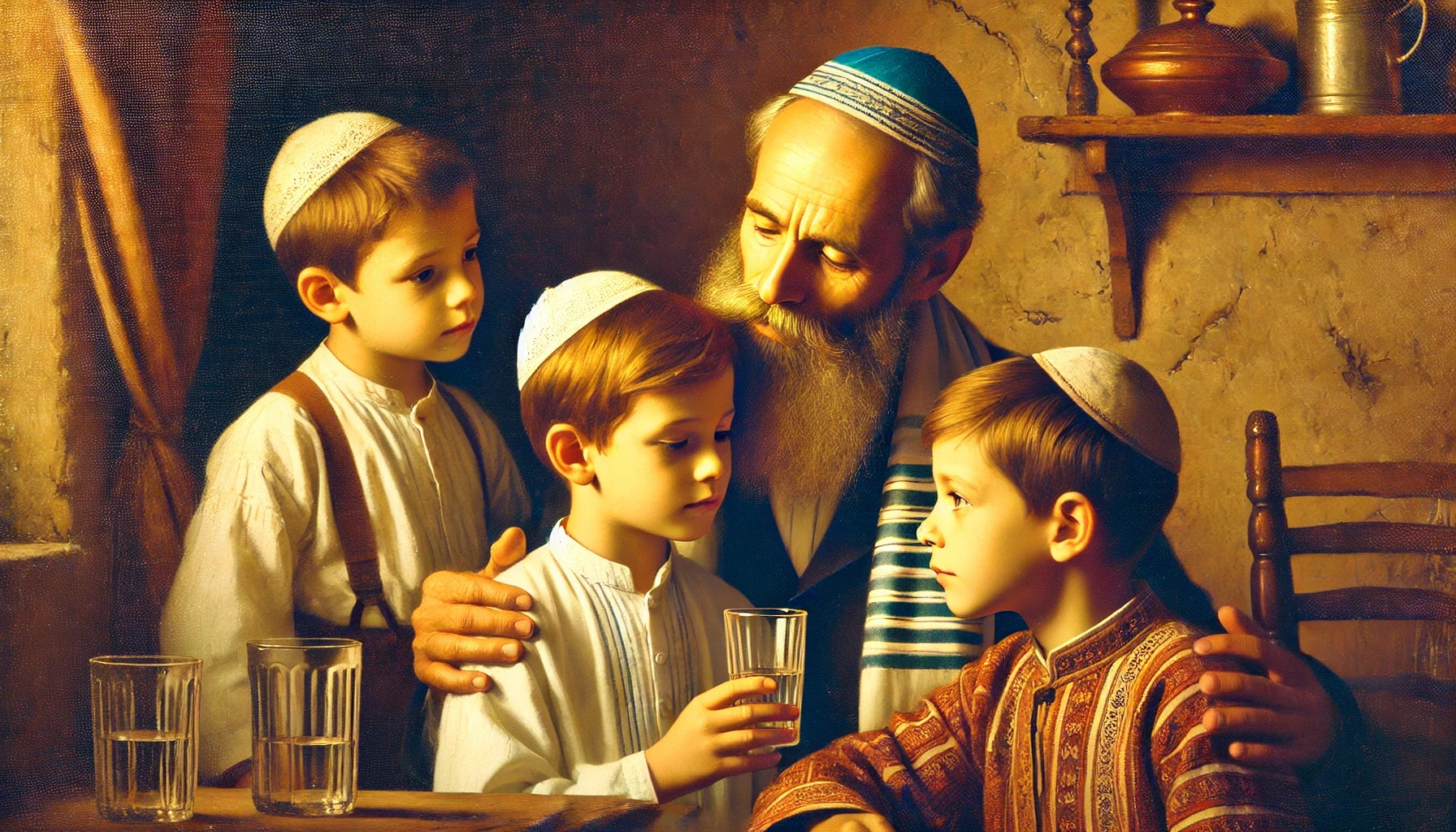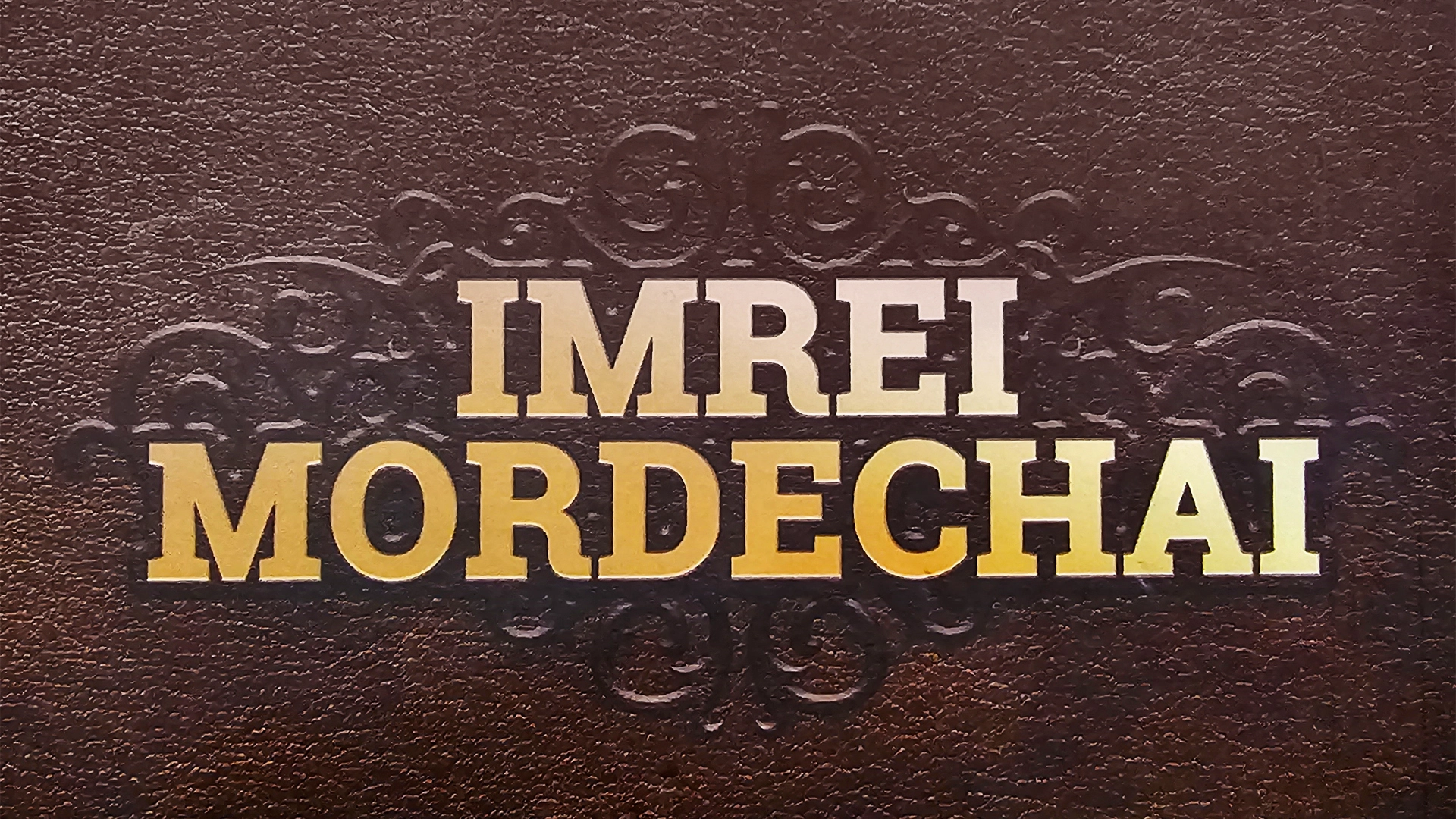Diaspora Yeshiva Toras Yisrael | Mount Zion, Jerusalem
Torah From Zion
The Prominence of Klal Yisrael
January 14th, 2025 / 14th of Teiveis 5785

Moshe's sin had no atonement?
In Parshas Chukas [the Torah Portion called Chukas], we find the recounting of the events following Miriam’s passing (Ch. 20). Their miraculous “well” vanished and the nation complained to Moshe [Moses], whereupon Hashem [G-d] appeared to them and told Moshe to take his staff and speak to the rock to procure water. However, Moshe then struck the rock, and immediately was censured by Hashem, “Because you did not trust in Me to sanctify Me before Bnei Yisrael [the Children of Israel], you will not lead this assembly into Eretz Yisrael [the Land of Israel].”
From the verses there it would seem that Moshe sinned by hitting the rock instead of speaking to it, which was considered on his lofty level a chillul Hashem [desecration of G-d’s Name], and thus was punished by being banned from entering Eretz Yisrael. And even though he prayed 515 supplications (the gematriah [numerical value] of *Va’Eschanan [And I Pleaded]”) in order to repeal the decree, he was denied.
This is a very puzzling picture: Is there any sin that can’t be rectified by repentance? It is well-known that teshuvah [repentance] atones for all iniquities, even intentional ones (Yoma 85b – 86b). Why couldn’t Moshe’s entreaties gain forgiveness from Hashem?
There is a concept: with His tzaddikim [righteous ones], Hashem is stringent “to a hairsbreadth” (Bava Kama [Talmud] 50a), and so even miniscule misdeeds are deemed major infractions. But that doesn’t negate the rules of repentance, and if it works for others’ severe transgressions, it should also work for tzaddikim. Otherwise, even in the Next World tzaddikim would lack rectification for their sins, even after suffering and ablutions—and that is illogical! As well, when the Gemara [Talmud] discusses the four categories of atonement (Yoma 86a) and concludes that teshuvah and death atone for everything, it does not exclude tzaddikim.
Perhaps you will argue that it was because Moshe’s sin incorporated chillul Hashem, as the verse indicates, “You did not sanctify Me.” Still, it is strange to say that Moshe’s prayers and merits didn’t suffice to allow his entry into the Land and defer his atonement in some other way.
Another question is that Rabbeinu Yonah writes in Shaarei Teshuvah 4:16 that even the serious sin of chillul Hashem may be rectified by sanctifying His Name through the study of Torah [the Teaching a.k.a. “Law”], as it says, “A healing tongue is the Tree of Life” (Mishlei / Proverbs 15:4). If so, certainly Moshe Rabbeinu [our teacher Moses], the scholar of scholars who gave over the Torah to all Klal Yisrael [the Jewish People], should have wrought atonement through his efforts in Torah study!
Furthermore, a powerful tool is available to any Jew: prayer to invoke Hashem’s attribute of mercy. King Chizkiyahu [Hezekiah] taught us, “This I received from my forefather: even if a sharp sword is at one’s neck, don’t stop praying for Hashem’s mercy” (Berachos [Talmud] 10a). Again, why didn’t Moshe’s hundreds of prayers arouse the attribute of mercy, and evoke consent to his request?
We do find an instance of irrevocable iniquity with Shlomo Hamelech [King Solomon], as the Midrash [Exegesis of the Sages] relates (Shemos Rabba / Exodus Rabba, Va’era). Although the Torah instructs the Jewish monarch, “Do not take too many wives, lest they turn his heart away” (Devarim / Deuteronomy 17:17), Shlomo pondered this prohibition and decided he was an exception. “Why did Hashem say not to have many wives? So that they don’t affect him. I can marry many women and they will not affect me.” State our Sages: At that time the letter “yud” of לא ירבה came imploring before Hashem, “Did You not say that no letter of the Torah will ever become nullified? Yet Shlomo has now nullified me! (By increasing the number of his wives, he effectively intimated that it should be read רבה [to increase].) Watch: today he nullified one letter and tomorrow another, until he’ll negate the whole Torah!” Hashem agreed to his argument and replied, “Shlomo and a thousand like him will be annulled before one particle of you will be invalidated!”
That incident is quite different from Moshe’s, though. When it comes to upholding the holy Torah there is no room for leniency. Pardoning Moshe’s misdeed would not involve any violation of Torah precepts. Why was repentance not an option?
A sin against Klal Yisrael has no teshuva
The Ran [Rabbeinu Nissim] addresses this topic (Drasha / Sermon 9). He begins with two principles for influencing another person to repent. Firstly, one must inform him of the particulars [1] of his sin, for otherwise he won’t correct it. As Dovid Hamelech [King David] testified, “My sin is before me always” (Tehillim / Psalms 51:5); ignoring a sin is like a sick man ignoring his sickness — he can never be healed! Secondly, the sinner should be informed that he is pleasing in Hashem’s eyes and can still attain lofty heights of spirituality if he uses his abilities properly. Indeed, he can now reach a higher level than prior to his sin. Moshe Rabbeinu used both of these techniques when he rebuked Klal Yisrael for their shortcomings in Sefer Devarim [the Book of Deuteronomy].
First, he told them, “Hashem became angry with me, as well because of you” (1:37). Here he informed them of the magnitude of their sins—even I was punished because of you. Then, he employed the second tactic when he said, “Hashem became angry with me for your sake” (3:26); he meant that due to their tremendous importance, he couldn’t be forgiven.
The Ran continues with a novel insight. Although Hashem is full of mercy, and forgives even grievous sins, that is true only for sins between man and his Creator (Yoma 85b). If, however, the infraction causes harm to fellow Jews, there is no way for it to be erased (without their forgiveness). Dovid vouched for himself, “To You alone I sinned, and what is evil in Your eyes I did” (Tehillim 51:6), that he harmed no man.
Moshe Rabbeinu told Klal Yisrael that he wasn’t pardoned because of the high esteem Hashem holds them in. And his sin was primarily striking the rock, as mentioned, but during that episode he also belittled the honor of the Jews when he said: “Listen now, you rebels.” Hashem was ready to forgive His own honor, but not that of Klal Yisrael. This is a lesson for all generations, to uphold the honor of the Klal, as the congregation as a whole has prominence far above that of an individual. There is no atonement for their degradation, even if the one seeking atonement is the nation’s greatest Torah scholar, does teshuvah and prays endlessly.
Bringing honor to Yisrael atoned for lessening it
We can add, to answer what was noted about rectification for his misdeed, that perhaps the very fact that Moshe wasn’t forgiven was his atonement. It served as an example and testimony to the great value of the Klal, so that his punishment was a vehicle for Hashem’s message to be taught.
- We find this point in Chazal [the Sages] — the Sages and Prophets did not know the reason for the destruction of Eretz Yisrael at the time of the Churban [Destruction], until Hashem Himself explained that it was because they didn’t make the blessing before Torah study (Nedarim / Vows 81a). We see that repentance is not acceptable until the precise sin is known.
Excerpted with permission from Imrei Mordechai, Vol. 2, A Collection of Inspirational Insights from the “Mussar Shmoozes” of HaGaon Rabbi Mordechai Goldstein Ztzvk”l, The Imrei Mordechai Institute, Diaspora Yeshiva Toras Yisrael, Mount Zion, Jerusalem, Kislev 5779.

Share This!
Come Learn Torah!
From beginner to advanced, if you’re a Jewish man, 18 to 35 years of age, and you’re ready to give your heart to HaShem, and to get serious about learning Torah, Diaspora Yeshiva has a place for you with us on Mount Zion, Jerusalem.